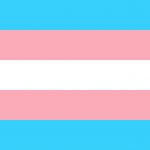Ward’s Words: An ethics reform must include the public
Professional news organizations and associations are seeking—or forced?— to rewrite their codes of ethics in the face of overwhelming change to journalism. From the start, citizens should be invited to participate alongside professionals in a searching discussion of how to redefine journalism ethics, writes media ethicist Stephen Ward.

Professional news organizations and associations are seeking—or forced?— to rewrite their codes of ethics in the face of overwhelming change to journalism.
In the United States, the code writers include The Society of Professional Journalists (SPJ) and the Online News Association. Public broadcasters are redesigning their basic ethical framework. In Canada, there are the labours of the ethics committee of the Canadian Association of Journalists (CAJ), and the CBC has tightened its rules on paid speeches to protect impartiality.
This redefining of standards reflects a breakdown in consensus around journalism ethics. There is barely a principle not under question. Media ethics is a fragmented field. Reform is inescapable. But how does that reform happen?
I welcome these professional initiatives looking at media ethics. I participate in them. But professional initiatives alone won’t do. We need new, additional methods that open up to a broad journalism world.
Related content on J-Source:
- Do journalists have an ethical obligation to moderate online conversations generated by their stories?
- New Torstar code of business conduct raises conundrums for journalists
- On the record: Is it really consent without talk of consequences?
Today’s media revolution requires a reform process that is (1) radical in spirit, (2) integrative in terms of content and (3) open to meaningful public participation. When professionals strike code committees, too often the approach is the opposite—it is conservative, “assimilative” and closed. By radical, I mean a willingness to seriously challenge fundamental beliefs, not set out to “save” them through modest changes, like altering the fringes of a dress. By integrative, I mean reformers should write new content that can unite the plural forms of journalism around wide democratic values. We need to invent a new media ethics, not defend the status quo. We should ask: What ideas might be endorsed by a multi-dimensional journalism that is online and offline, impartial and advocatory, objective and opinionated? Are there common values for building a new consensus?
The professional approach is often not integrative, but assimilative. It seeks to extend existing codes from a previous media era to the practice of new media, such as social media. By being open, I mean the process of ethics reform is not closed to people outside professional journalism. From the start, journalism ethics was intended for professional practitioners, not non-professionals. It was created, controlled and approved by professionals. Citizens have played a minor role in the process. Today, any ethics reform that does not explicitly include the public in the process will have its credibility challenged. It will be characterized as a secretive exercise by an elite group.
Code writers, then, can make three mistakes:
- Playing it safe. Code writers should not see their job as sailors who stay close to the shoreline of mainstream journalism, but rather as pioneers who venture out into the open sea. Today we need ethics thinkers and committees who challenge the status quo and shake the pillars of traditional media ethics.
- Reluctance to create new and bold content. Code writers should not fall back on the tired excuses for not developing ethics content, for example, journalists don’t need new rules; each newsroom can decide on a case-by-case basis; new rules threaten journalists’ autonomy.
- Journalism ethics “belongs” to us professionals. It does not. It applies to anyone who commits an act of journalism. Professionals are a special case. Moreover, the basis for journalism ethics is what the public needs from its media system.
The Society of Professional Journalists process
Do I see these missteps occurring today among the professional initiatives? Yes. Consider an example. For the past year, the U.S. Society of Professional Journalists (SPJ) has been examining its influential code. Members and ethicists serve on committees that develop draft language for updating its principles. I serve on the committee considering the principle of independence.
In my terms, the SPJ process is a closed one. It is a process dominated by in-house committees and reaction from SPJ members. It tends to be cautious and non-radical. Yet, below the surface, there is a tension between those who want more extensive reform of the principles and those who want to protect the principles and assimilate new practices.
The result? Recently, questions of credibility have arisen.
Non-SPJ bloggers, some SPJ members and others complained that the process is not inclusive and transparent enough. SPJ President David Cuillier had to respond. Cuillier said that, in retrospect, he should have seen that the process might lead to the idea that “it’s just a bunch of old print guys hashing through it in a smoky backroom, over Scotch.”
To his credit, Cuillier took steps to make the process more public and to reach out to people outside the SPJ. But my point remains: in today’s media world, a professional process that doesn’t seriously involve the public from the start is open to suspicion and criticism.
The SPJ is not alone in using a traditional model for reform. The CAJ ethics process, which I helped to found, follows a similar model. In the early 2000s, I chaired committees that produced the CAJ’s general code of ethics and its code for investigative journalism. It was a closed, professional process, for the most part.
It is time for a change. We need to look elsewhere for other models.
Integrated public process
Here is one alternative: we develop what I call an “integrated public process” for ethical reform based broadly in civic society, not encapsulated within professional journalism.
The process does not exist, so I can offer only some general ideas. From the start, citizens would be invited to participate alongside professionals in a searching discussion of how to redefine journalism ethics. They would begin with such basic questions as: what media system does our democracy need? What aims, principles and practices are best? Within this context, what is the role of professional journalism? Citizen journalism?
In short, we would discern the contours of a “media ethics for everyone.”
To get the process started, perhaps a school of journalism could partner with several foundations. The partners would leverage the power of new media technology to promote dialogue. Also, they would provide a structure for informed, respectful discussions leading to draft language on major ethical issues.
In addition to online discussion, the partners would organize public meetings. Some meetings could be staged as “citizen assemblies,” where a representative cross-section of citizens and journalists consider a major problem and develop a reflective response.
To be clear, I support professionalism in journalism. I have been a professional journalist. I work with professional organizations. I teach professional ethics to students. Professional journalism is an important player in democratic journalism.
But professionalism has positive and negative traits. It can be forward-thinking or conservative. Closed or open. Cautious or inventive. High-minded or marred by narrow politics. It can support new ethical initiatives or obstruct proposals as threats to a free press.
Ideally, to promote reform, I would like to see the simultaneous development of a more creative professional approach and the integrated, public process. Each process would make up for the blind spots of the other. The result would be a richer civic basis for journalism ethics.
At times, the process would be messy and controversial. But that is the way with ethics amid a revolution.
Related content on J-Source:
- Ward’s Words: Do ethics, not definitions
- Ward’s Words: Putting transparency in its place
- Media ethics as activism
Tamara Baluja is an award-winning journalist with CBC Vancouver and the 2018 Michener-Deacon fellow for journalism education. She was the associate editor for J-Source from 2013-2014.



